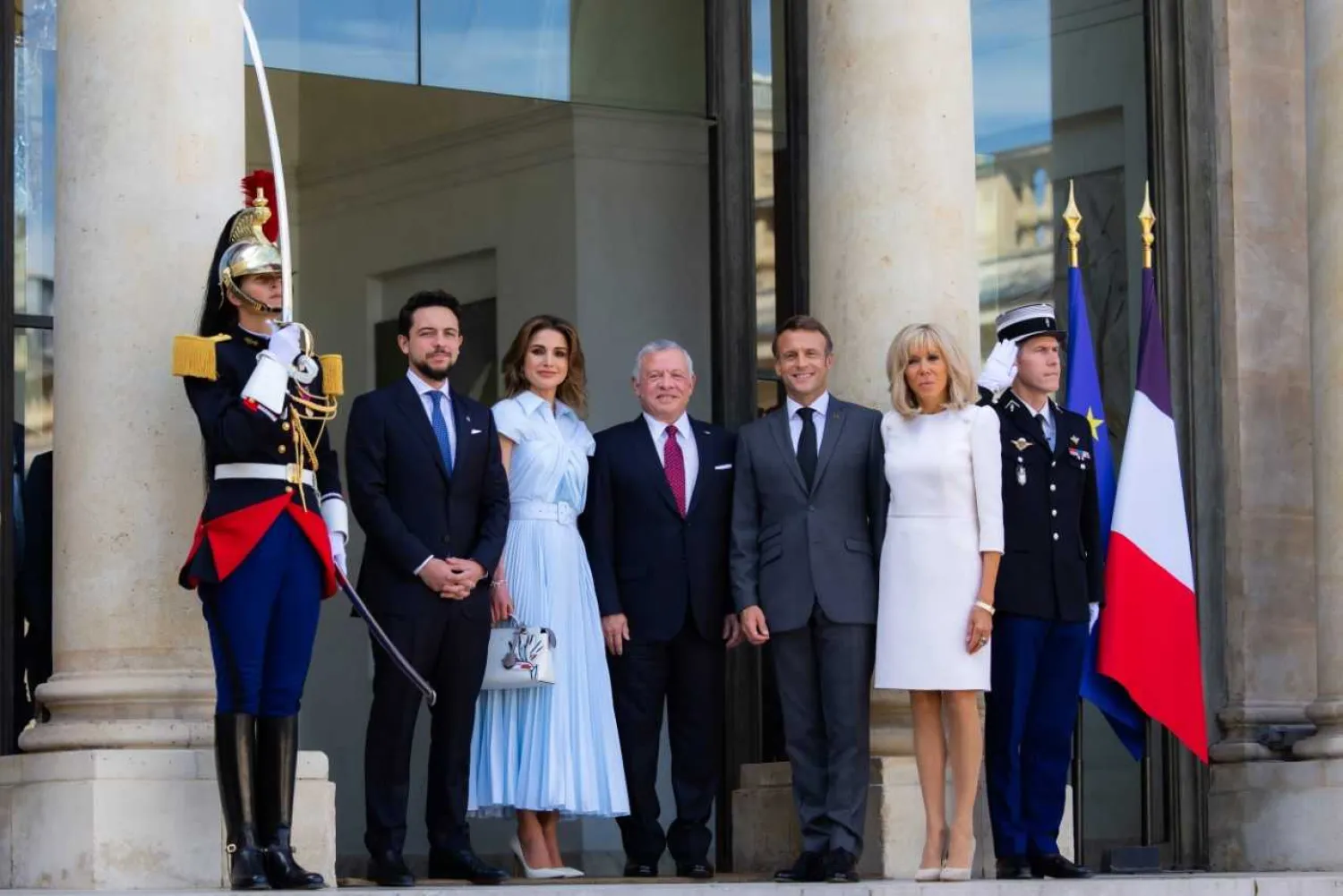French President Emmanuel Macron addressed the visit of the Jordanian monarch to Paris in his speech last month during the annual French Ambassadors' Conference and referred to the second Baghdad Conference for Cooperation and Partnership.
The Baghdad Conference for Cooperation and Partnership was held in the Iraqi capital during the summer of 2021, and France saw it as a massive success given its extensive regional participation.
France also saw the conference as a platform for countries that were not engaging in dialogue, in reference to Iran and the Gulf states.
For several months, work has been underway between France, Jordan, and other countries to hold a second conference on the matter, which is supposed to be hosted by Jordan.
A French presidential source said the bilateral summit between the French President and King Abdullah II provides an opportunity to discuss the regional developments in the Middle East aiming at establishing stability and dialogue.
The King of Jordan arrived Wednesday in Paris, accompanied by Queen Rania and Crown Prince Hussein. They were received by President Macron and his wife, Brigitte. Later, Macron hosted King Abdallah II for lunch.
On the bilateral level, the source considered the meeting "a new stage of the strategic partnership" between France and Jordan, allowing joint action to face security and economic challenges.
France and Jordan seem concerned about developments in the Middle East and Iran's role, which Paris describes as "destabilizing."
During an interview with al-Rai newspaper, the Jordanian monarch previously condemned Iran's role in the region: "We hope to see a change in Iran's behavior, and it must materialize on the ground because it would be in the interest of everyone in the region."
The King asserted that Jordan, like any other country, does not "want regional tensions, and we, and all Arab countries, seek good relations with Iran, based on mutual respect, good neighborly relations, and respect for countries' sovereignty and non-intervention in their internal affairs."
Jordan's approach is identical to France's. Paris is concerned that current efforts to revive the nuclear agreement with Tehran might fail and is concerned about its impact on regional stability in an area undergoing several problems and wars.
King Abdullah and the French President have a close relationship dating back to the beginning of Macron's first term in 2017. However, the visit came after a three-year interruption due to the COVID-19 pandemic. This is the eighth visit of its kind by King Abdullah II to the Elysee.
However, Macron has not yet visited Jordan. If the "Baghdad 2" summit is realized, it will be Macron's first time in Amman.
France and Jordan have a strong relationship at all strategic, political, security, economic, and cultural levels.
During the war on ISIS, Jordan provided facilities for the French planes that participated in bombing the terrorist organization's sites in Iraq and Syria.
Jordan enjoys a unique geo-strategic position because of its geographical location and joint borders with Iraq and Syria. It is central to fighting terrorism and the region's future, security, and stability.
Jordan suffers from drug smuggling operations coming from Syria.
In recent months, there have been numerous clashes between smugglers and Jordanian security forces.
French and Jordanian parties are seeking to enhance their cooperation on the security level.
Moreover, the Jordanian King has a significant role in the Palestinian-Israeli file, which has been frozen for years. Recently, Macron received Israeli Prime Minister Yair Lapid and, later, Palestinian President Mahmoud Abbas.
France, along with the EU, wants to have a role to play as a mediator in this conflict. However, the French sources see slim chances for such a role shortly, noting that any development in this issue requires US involvement.









